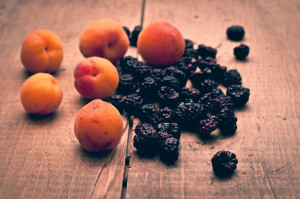-
Top 10 Nutritional Tips To Help Boost Vein Health
Posted on October 16, 2015 by in alcohol, apples, apricots, asparagus, avocado, beets, blackberries, blood vessels, blueberries, buckwheat, caffeine, cherries, circulation, fiber, FREE Virtual Vein Consultation, ginger, grapes, homocysteine, Naples Vein Treatment, rosemary, rutin, spider veins, Top 10 nutritional tips help boost vein health, varicose veins, vein diet, vein screening, watercressMaking just a few additions and adjustments to your diet can make a world of difference in the health and appearance of your legs. Improving your diet can reduce the pressure on your veins while boosting their overall strength.
Suggestions:
- Eat foods high in Rutin. Rutin is a plant pigment which acts as an antioxidant, an anti-inflammatory, a vasoprotective and an antithrombotic. It helps to fortify and support cellular structure, especially in veins.
The best sources are:
- Blackberries
- Apricots
- Apples
- Cherries
- Grapes
- Buckwheat
There are several plant based foods that are incredible for all natural vein support.
- Blueberries: Blueberries are a must for anyone looking to prevent varicose veins. The blue pigment anthocyanins (flavonoid pigments) helps boost collagen by neutralizing enzymes that destroy connective tissue by way of free radical break down.
- Avocado: Avocados contain high levels of Vitamins C and E (both vital for vascular health) as well as glutathione which further promotes proper absorption of the C and E vitamins. Additionally, avocado oil applied topically like a lotion has shown promise in helping sooth and strengthen leg veins as well as in consumption.
- Rosemary: This amazing herb stimulates circulation. It can be eaten fresh, dried, or applied topically by using essential oil.
- Ginger: Ginger helps to break down and dissolve fibrin (a non-globular protein involved in the clotting of blood) in the veins. Fibrin is what causes the varicose veins to become lumpy and hard.
- Asparagus: Helps to strengthen veins and capillaries and prevents them from rupturing.
- Beets: Beets contain betacyanin, the compound responsible for beets’ bright magenta color, isknown to significantly reduce levels of homocysteine. Homocysteine is a naturally occurring amino acid that can damage blood vessels.
- Watercress: this peppery tasting plant is also often recommended for the prevention of vascular issues.
- Adding more fiber to your diet is also a great way to keep the pressure off of your veins. Straining due to constipation can create pressure which can not only cause the formation of hemorrhoids but also of varicose veins further down the leg.
- Limit alcohol and caffeine intake. Especially for women drinking more than 1 drink per day increases the likelihood of spider veins. As for caffeine – Caffeine constricts blood vessels, increases blood pressure and decreases circulation, which isn’t healthy, especially for someone with venous disease.
While proper diet can be of significant value, if you are experiencing issues it is recommended to consult a specialist. To set up your FREE Virtual Vein Consultation please visit our website www.eveinscreening.com or give us a call today at (239) 694-VEIN and Let Dr. Joseph Magnant, M.D. experienced Fort Myers and Bonita Springs Vein Specialist help. Now serving two convenient locations – 1510 Royal Palm Square Blvd. Suite 101 Fort Myers, Florida 33919 and 3359 Woods Edge Circle Suite 102 Bonita Springs, Florida 34134.







